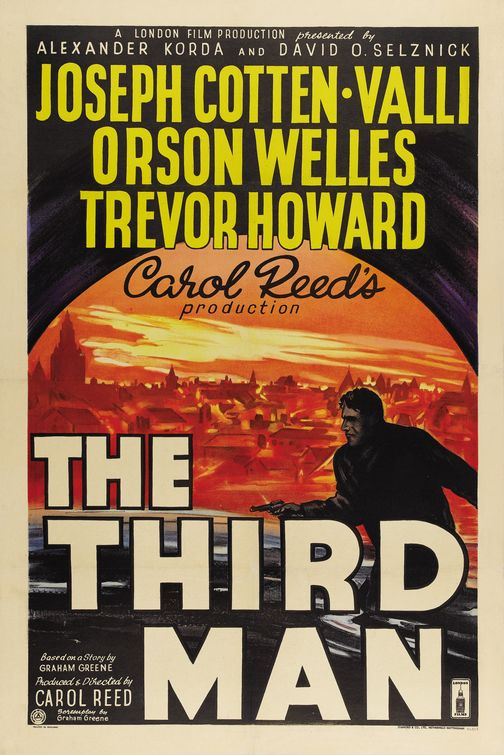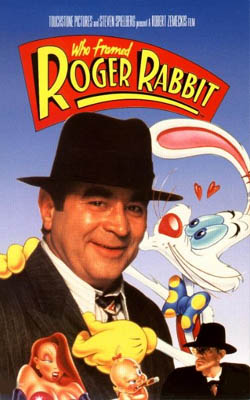 "Don't let yourself get attached to anything you are not willing to walk out on in 30 seconds flat if you feel the heat around the corner"
"Don't let yourself get attached to anything you are not willing to walk out on in 30 seconds flat if you feel the heat around the corner"Introduction
This is a fascinating film - it seems to have a strange 'edge' to it. Apparently its a love or hate film - with some people praising its characterisation while others feel it is a long, drawn-out action film. I side with the former, although after the first watched I did come away a little disillusioned, while after a second watch, it truly is flawless. An amazing film that secures me in the knowledge that Michael Mann is a force to be reckoned with - while Righteous Kill was a real scar on the De Niro/Pacino combo that was originally made up of The Godfather Part II and Heat. As previously mentioned, Sarah and I embarked on an Al Pacino season, and due to my first watch, to some extent I put Sarah off from watching it. Eventually, I convinced her it was going to be a good watch (not 100% sure - it had been years since that first watch but a risk worth taking) and we sat down and put aside the three hours necessary to watch it.
What I reckon ...
Having watched 'Public Enemies' the previous week and then watching this shows how talented and impressive Michael Mann truly is. This is a film which, shot-by-shot, looks sharp and progresses without rushing. Its an action movie and yet does not adhere to common 'action-movie' cliches. We see the pressures and humanity in both the cat and the mouse, before the cat becomes the mouse and the mouse becomes the cat - the brilliant two-scene sequence as we see the LAPD after McCauley and then McCauley photographing the LAPD, as he works out who they are. It then finishes with focus on the two characters alone - following an amazing bank robbery sequence that must rank with the best bank robbery sequences of all-time.
 De Niro is playing Neil McCauley - a criminal mastermind with no intention of making a single mistake. He never takes risks and is willing to walk away if the risk is too great. Pacino is Vincent Hanna is a homicide/narcotics lieutenant attempting to catch him. He is someone who, upon the first time we meet him - analysing a robbery McCauley organised - he misses nothing. He knows the angles they came from - and is fully aware of how perfect the hit went down. They are both obsessed with their jobs and both show a focus and discipline for their jobs.
De Niro is playing Neil McCauley - a criminal mastermind with no intention of making a single mistake. He never takes risks and is willing to walk away if the risk is too great. Pacino is Vincent Hanna is a homicide/narcotics lieutenant attempting to catch him. He is someone who, upon the first time we meet him - analysing a robbery McCauley organised - he misses nothing. He knows the angles they came from - and is fully aware of how perfect the hit went down. They are both obsessed with their jobs and both show a focus and discipline for their jobs.The whole first watch is very different to the second watch - on a first watch you don't know where the story is going, and as we look at so many different characters you are not too sure which character you should invest your focus in. On a second watch, whereby you know the story and plot, you don't have to worry about 'following' anything - so you can just enjoy the viewing and notice the smaller and incredibly significant aspects to the story. For one, the issues presented in the first act - Waingro escaping, Van Zandt's double-cross - are not expected have a knock on effect on everything that precedes it. The one thing he has always anticipated and was prepared for - leave Edie in the car (in 30 seconds...) - has a more detrimental effect. Then again, maybe he couldn't escape after all. Hanna, without realising perhaps, was one-step ahead.
The women also have a fascinating role in the story. These all factor into the narrative - nothing is simple. Edie, Neil's love interest, we are teased into thinking she might 'change' him - but we realise in the final act that he lives by his rules (see the quote) and does so, sealing his fate. In a similar parallel, Hanna also confirms his lack of commitment to his partner Justine because he knows how much the job means to him. Interestingly enough, Neil tells Edie he'd stand by her - and doesn't - Hanna says he can't stand by Justine, but to some extent, I think we are led to believe that they can continue their relationship - but on Hanna's terms of putting the job first. Edie is not a blameless victim because she does decide to stand by her criminal partner when she finds out his true profession but she is left humiliated in the car alone.
I think it would be great to dwell on that perfect sequence in the coffee house between McCauley and Hanna. It establishes so much without making anything too obvious. Vincent stating his stance "I will put you down", while McCauley doesn't even flinch to state where he stands that if Hanna gets in his way, he "will not hesitate ... not for a second". Its all over-the-shoulder shots, subjecting us to the intense stare of McCauley and the pseudo-laid back approach by Hanna. We feel every line, and are aware of the importance of every line stated. For many months now I have been collected older issues of Sight and Sound that regularly turn up at Kentish Town Oxfam (50p a pop is worth every penny!) and in one issue dated March 1996, there is an analysis of this sequence as we see Michael Mann's script notes on the sequence. The article notes how both characters are aware of the nature of time as luck and that life is short. Mann notes that Hanna, as a hunter, darts his eyes around getting every scrap of information on McCauley while they are together. Fascinating insight details that I would recommend anyone interested in the sequence.
An interesting facet - that I think has no clear parallel with Hanna - is McCauley's friendship with Val Kilmers 'Chris'. McCauley's belief and trust in Chris, to some extent, is what destroys his perfect organisation. He stands by Chris, though Chris is in a position whereby he cannot walk away in 30 seconds. Chris has a family and, though difficult at times, they support him, while McCauley ultimately has nobody making McCauleys entire arc tragic - as he is the one 'taken down'. Though a double-force with Pacino and De Niro, it is De Niro's character that we initially follow from the start and - though Hanna has met his match in McCauley - it is McCauley who is taken out. It is his story ... with a lot of scope for characterization of everyone else.
Nick James, in his BFI Modern Classic on Heat shows clear comparisons to Michael Mann's earlier work - the use of blue in Manhunter is doubled up in Heat. The whole of LA is sinked into this pot of blue paint - and it looks perfect. McCauley lurks in the shadow like a predator. James further explains the depth of each character and how, due to the intensity and perfectly pitched nature of the film, Pacino holding De Niro's hand as a symbol of understanding between the two men during the finale is exceptionally powerful while on a base level it is a ridiculous thought - De Niro and Pacino holding hands.
Which is where I end this review/analysis. The two men are at the peak of their careers - they are at an age whereby these roles reflect their history and experience, while at the same time maximising the character depth, showing how great they are (not that Raging Bull and Scarface made us think they were bad actors). The cop role of Pacino in Sea of Love is so simple compared to Hanna - a cop who has a family and a job which he has to balance so precariously. This film is a masterpiece - epic, grandoise and not be missed.








